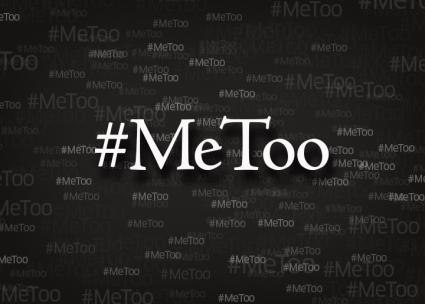When the angel of the Lord announces the plan for Mary to carry within her and birth Emmanuel, she questions, but ultimately agrees. Mary gave consent. So Mary does not need to say #MeToo, at least not about the incident for which we all know her.
Yet #MeToo is not just about sexual harassment or assault.
It is about escaping the silence, exposing how widespread and suffocating the risk of sexual violence is. It is about how those with power over you can ruin you without a thought, thus so many of one’s thoughts must be consumed with keeping oneself safe. It is about the implications of speaking up that have kept so many silent for so long. Some might claim they had no idea until a tsunami of #MeToo flooded their social media. But Mary knew these risks — all the reasons we keep silent.
READ: As A Mother of Two Sons, My Take on #MeToo
She had to know that no one would believe her. Mary said yes, and later with her cousin Elizabeth even sang a hymn of praise for a pregnancy she would not be able to explain except to say that it was from God. Joseph would not believe her, until a messenger of God visited him privately in a dream. Mary’s word was not enough. She had to know it would not be.
The “man in her life” was surely not the only one concerned for her, yet no one else is recorded to have any heavenly messengers visit. Was Mary’s word enough for her parents, aunts, uncles, cousins, neighbors? Or did they always thereafter remember this about her: that the timeline did not quite check out for her marriage and pregnancy.
Was there a persistent inkling in their heads when her son Jesus preached for the first time in Nazareth (Luke 4:22), telling them that the scroll of the prophet Isaiah was being fulfilled in their hearing? They asked each other: “Is this not Joseph’s son?” But maybe it was also a subtle slur, because there was always some discrepancy about Joseph’s paternity.
Mary had to know that there were implications for her reputation, and this must not be made to sound frivolous. To be pregnant, let alone young and unmarried, could mean being publicly disgraced or fading into oblivion as all her people abandoned her. Whether pregnancy results or not, many who are now publicly saying “Me too” have to weigh the implications of going public for how this will affect their futures: family, work prospects, public persona, reputation.
The greatest risk for Mary was not what other people could think of or do to her. It was the emotional burden of birthing a child into a world that neither recognizes nor welcomes God.
It sounds wonderful when the Angel Gabriel says, “He will be great, and will be called the Son of the Most High, and the Lord God will give to him the throne of his ancestor David. He will reign over the house of Jacob forever, and of his kingdom there will be no end” (Luke 1:32). But when humans — who are in touch with God — speak the truth over the infant eight days old, it is a different story. The aged Simeon tells Mary, “This child is destined for the falling and the rising of many in Israel, and to be a sign that will be opposed so that the inner thoughts of many will be revealed — and a sword will pierce your own soul too” (Luke 2:34).
How does one give birth to soul-piercing tragedy in a child and not be crushed to pieces by the sadness of anticipation? Yet Mary recognizes in this act that God is reversing all structures of power, and sings the Magnificat. The greatest reversal must be that staying silent is a greater risk to her soul than anything that can be done to her body.
READ: ‘Because #MeToo Breaks My Heart, Makes Me Pissed as Hell’
Almighty God chose vulnerability by entering the world as a helpless infant. But this great vulnerability was only possible because Mary took on much greater risk, recognized God at work in it, and even rejoiced at being part of it! This is crucial foreshadowing for Christians who would wish to bear God’s redeeming presence into the world. We will not be able to do so without great personal risk.
Safe evangelism, expressing or giving out of our abundance (after we have all we want) nets few results. When we are not concerned about losses we might incur, then there is just not much at stake, and the message falls flat.
What does it mean that our God only enters into the world at the risk of ruining the lives of those who bear his presence? It means the reversals will be extreme — even to the point of death turning into new life.

